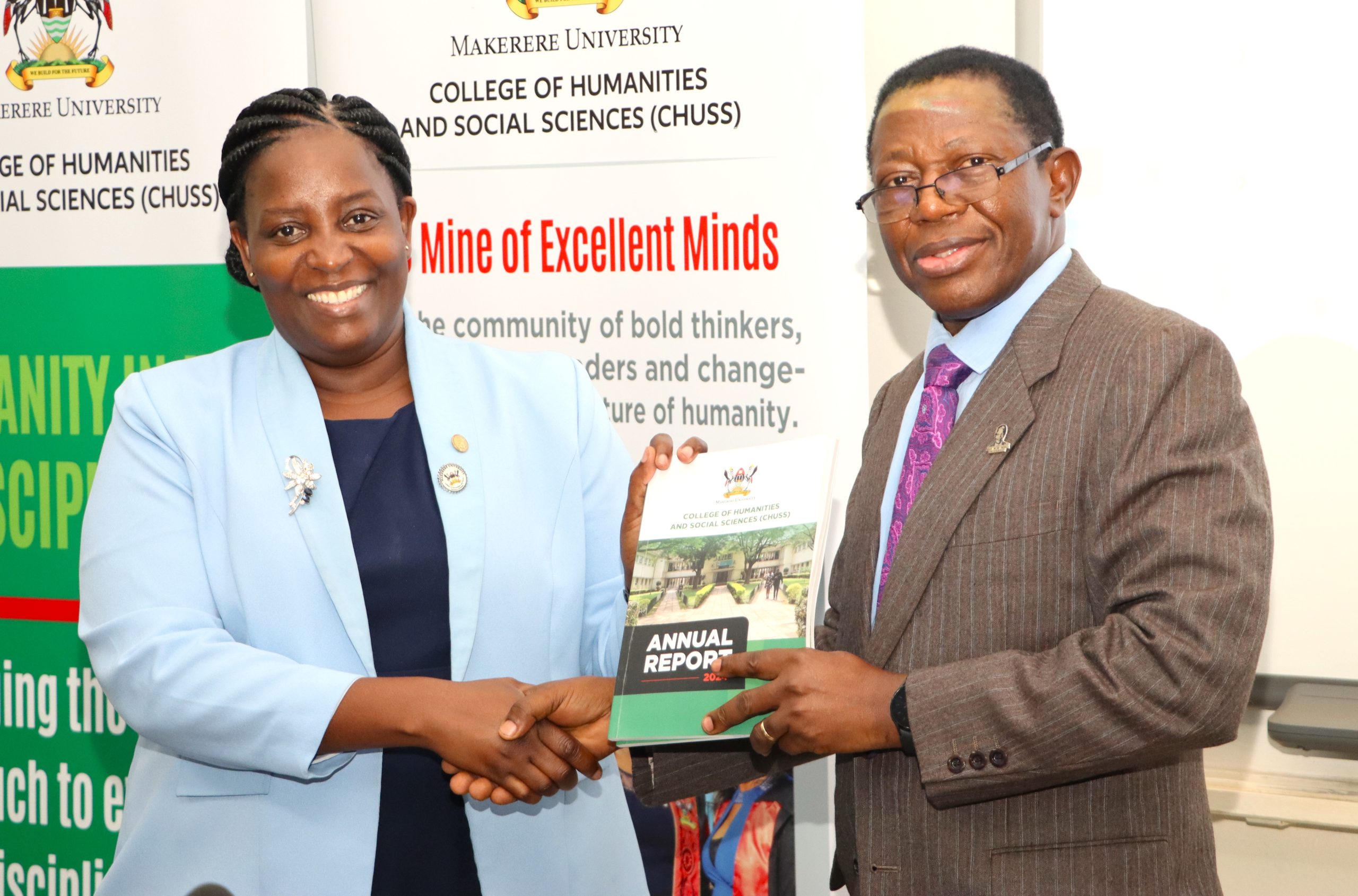Makerere University – July 3, 2025. — Makerere University has renewed its commitment to addressing structural and academic challenges raised by the College of Humanities and Social Sciences (CHUSS), following a candid and solutions-focused engagement with faculty leaders. The meeting, led by Principal Prof. Helen Nkabala, was met with strong endorsement and pledges of reform from the Academic Registrar and Acting Deputy Vice Chancellor (Academic Affairs), Prof. Mukadasi Buyinza, who was Acting Vice Chancellor.
In a spirit of openness and collaboration, Prof. Buyinza acknowledged the pressing concerns affecting staff morale, academic delivery, infrastructure, and inclusive learning—but emphasized that these challenges also present a valuable opportunity for meaningful transformation.
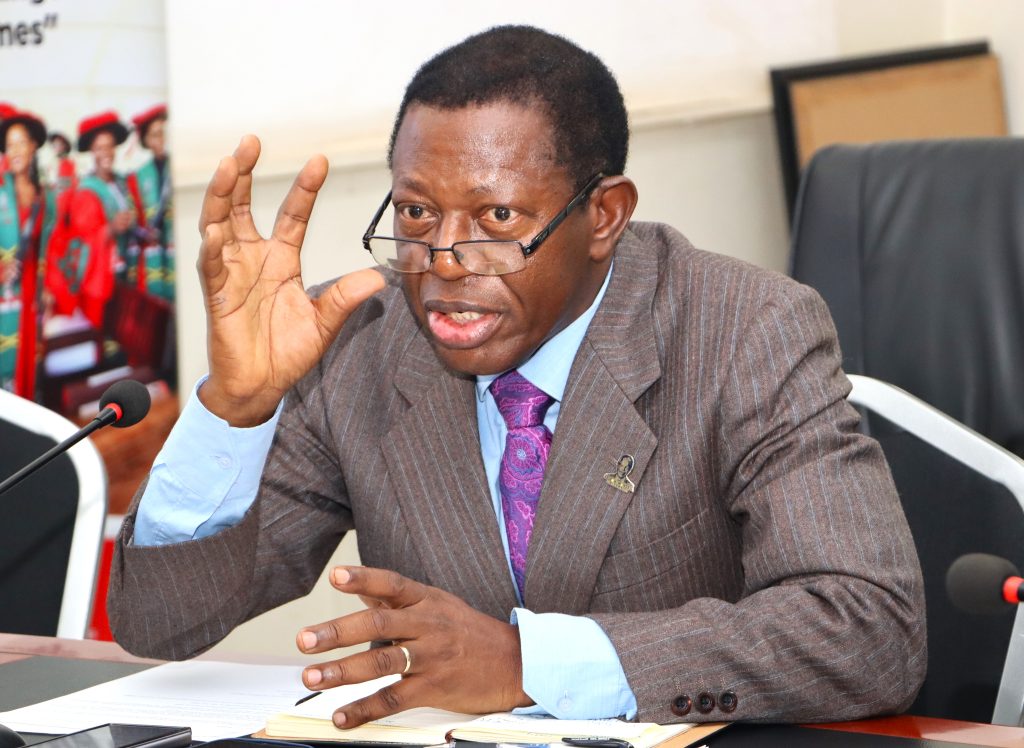
“Yes, we are facing some constraints,” Prof. Buyinza said. “But your presence here gives me hope. It tells me that the academic community still believes in the possibility of progress—and we will act on that belief.”
Among the key reform areas, Prof. Buyinza highlighted the need to revisit post-retirement contract policies that inadvertently exclude senior scholars due to rigid requirements such as ongoing grants. He proposed benchmarking against international best practices to ensure experienced academics continue to contribute through mentorship and supervision.
On disability inclusion, he praised CHUSS for its leadership in enrolling students with disabilities and called for enhanced investment in accessible learning environments. “It’s not just about physical access,” he noted. “It’s about equipping every student with the tools they need to succeed. We must build a truly inclusive university.”
Prof. Buyinza addressed long-standing concerns about uneven infrastructure across the university, pledging to push for balanced investment in furniture, facilities, and technology. He announced a revival of the ergonomic inventory plan—particularly for staff over 50—and supported CHUSS’s request for additional computers and multifunctional printers to strengthen digital learning capacity.
He also promised a re-evaluation of academic workload policies and support for overburdened supervisors, noting that fair workload distribution is essential for quality education and sustainable academic mentorship.
Regarding supervision, he stressed that only registered students should receive academic guidance, citing a case where someone had been informally supervised for over a decade without valid registration. On evening teaching, he acknowledged the need for policy clarity, stating that expecting staff to teach beyond 5 p.m. without proper recognition was unsustainable and must be revised.
Prof. Buyinza concluded with a call for continued collaboration, urging departments to present clear, evidence-based cases to justify staffing and resource needs. “Let’s present facts clearly and consistently. With the Principal’s report and your input, we have a strong foundation to advocate for what CHUSS—and Makerere as a whole—needs to thrive.”
Principal Calls for Strategic Support to Drive University Growth
The College reaffirmed its commitment to academic excellence, student inclusion, and national impact through a comprehensive presentation highlighting key areas where strategic support would significantly enhance teaching, research, and service to society.
Speaking during a high-level engagement CHUSS Principal, Assoc. Prof. Helen Nambalirwa Nkabala, shared the college’s aspirations and current challenges, while articulating a clear roadmap for growth aligned with Makerere University’s strategic goals.
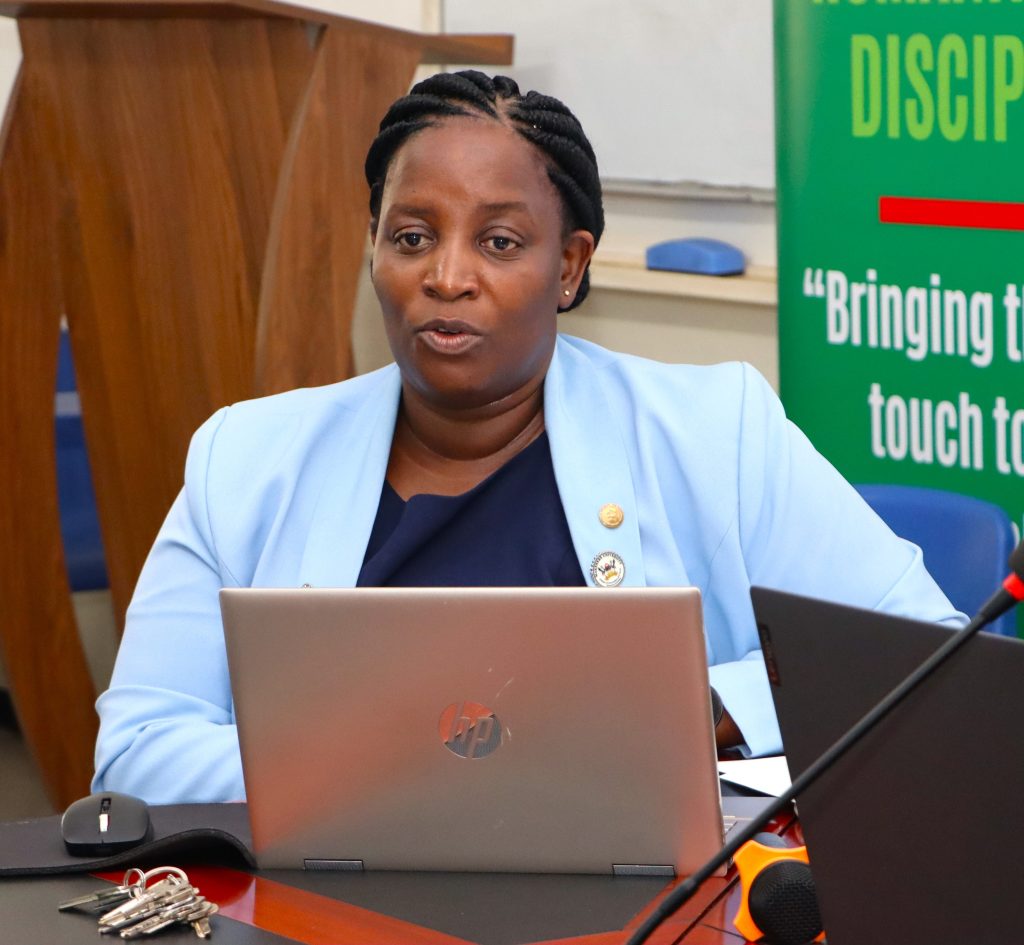
The meeting brought together representatives from the Office of the Academic Registrar and Deputy Vice Chancellor (Academic Affairs), the Directorate of Graduate Research and Training, the Quality Assurance Directorate, as well as CHUSS Deans, Professors, Department Heads, and administrative leaders. Together, they examined the evolving needs of a college that plays a pivotal role in the university’s academic mission.
Assoc. Prof. Nkabala commended recent staff promotions and the ongoing support from central units, emphasizing that continued collaboration is essential to unlocking the full potential of CHUSS. She noted that while strides have been made, certain systemic challenges—such as infrastructure limitations, staffing gaps, and digital capacity—require targeted attention to sustain progress and ensure a conducive academic environment.
Among the issues discussed was the need to streamline academic promotion processes to match current realities. She observed that while external fundraising has become a benchmark for some promotions, many talented academics may be disadvantaged by thresholds that are not always easily attainable, particularly in disciplines where grant opportunities are limited. She also expressed hope that the wealth of senior academic experience within CHUSS can continue to be harnessed through a more flexible post-retirement policy that supports mentorship and graduate supervision.
On infrastructure, Prof. Nkabala highlighted the urgent need for more teaching and office space, modern furniture, and ICT tools to facilitate both in-person and online learning. Many CHUSS staff currently work in cramped conditions with limited equipment—yet continue to deliver impactful research and innovative teaching across multiple disciplines. The college requested additional chairs, computers, and multifunctional printers to enhance both administrative and instructional delivery.
CHUSS also reaffirmed its longstanding commitment to inclusivity, noting that it enrolls the highest number of students with disabilities at the university. Assoc. Prof. Nkabala called for continued investment in accessible learning facilities, noting that building inclusion goes beyond infrastructure—it involves ensuring students have the tools and environment they need to thrive.
The Principal also addressed the importance of aligning teaching loads with the demands of graduate supervision. With many senior faculty mentoring dozens of postgraduate students, CHUSS has proposed a flexible workload model that recognizes both classroom teaching and the time-intensive nature of academic supervision.
On the digitization front, she welcomed the university’s commitment to blended learning and open distance e-learning (ODeL), while noting that many staff still lack the basic equipment needed to participate effectively. The college estimates a need for at least 150 laptops to bridge this gap and ensure all departments are fully integrated into the university’s digital transformation journey.
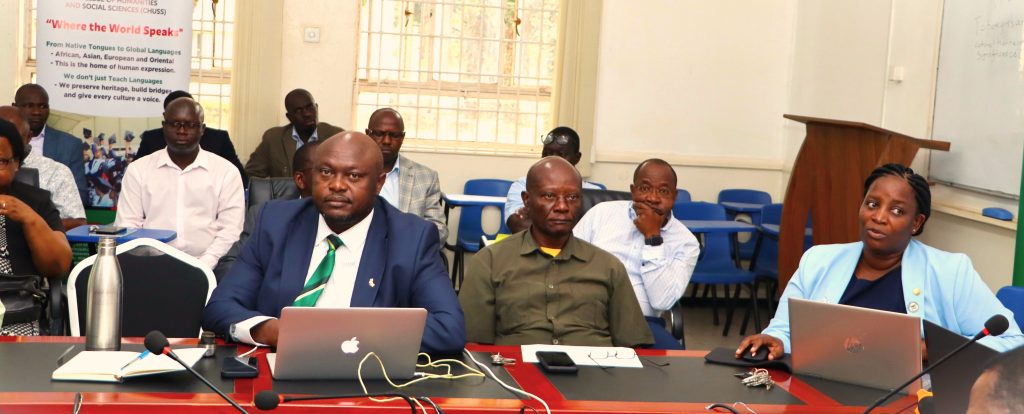
Field-based learning also emerged as a key priority. The college emphasized that field programs in areas such as psychology, languages, and peace studies are essential to producing well-rounded graduates and impactful research. Assoc. Prof. Nkabala advocated for a review of fieldwork funding mechanisms to ensure continuity of these community-centered learning models.
In her remarks, she reiterated CHUSS’s vital contribution to Makerere’s reputation, stating that the humanities and social sciences are not only foundational to the university’s academic identity, but also central to its global standing and societal relevance.
“We are the backbone of this university,” Prof. Nkabala said. “When you look at every Makerere graduate—whether in law, communication, education, or development studies—there is always a strong grounding in the humanities. Our responsibility is to nurture that foundation, and we are committed to doing so with excellence.”
The Principal closed by expressing gratitude to the university leadership for its continued engagement and responsiveness, and by calling for strengthened collaboration in addressing the needs of CHUSS and all academic units across the university.
The engagement was widely seen as a constructive and forward-looking dialogue, laying the groundwork for strategic investment in the academic core of Makerere University and reaffirming CHUSS’s leadership in shaping the intellectual and cultural landscape of Uganda and the region.
Makerere University Implements Stringent Measures to Address Postgraduate Delays Says Assoc. Prof. Julius Kikooma
Makerere University has introduced sweeping reforms aimed at tackling long-standing delays in postgraduate supervision, examination, and graduation processes, according to Prof. Julius Kikooma, a senior academic and administrator at the Graduate school.
Prof. Kikooma announced that the university had revised its policy on thesis examination timelines. Examiners are now required to complete evaluations within six weeks—down from the previous three-month window. The new policy came into effect in June 2024 and is intended to fast-track the completion process for graduate students.
“Delays in examination have been a long and winding issue,” Prof. Kikooma said. “This new policy significantly shortens the process, but enforcement remains key. Examiners must agree to the timeline and sign off before receiving any thesis.”
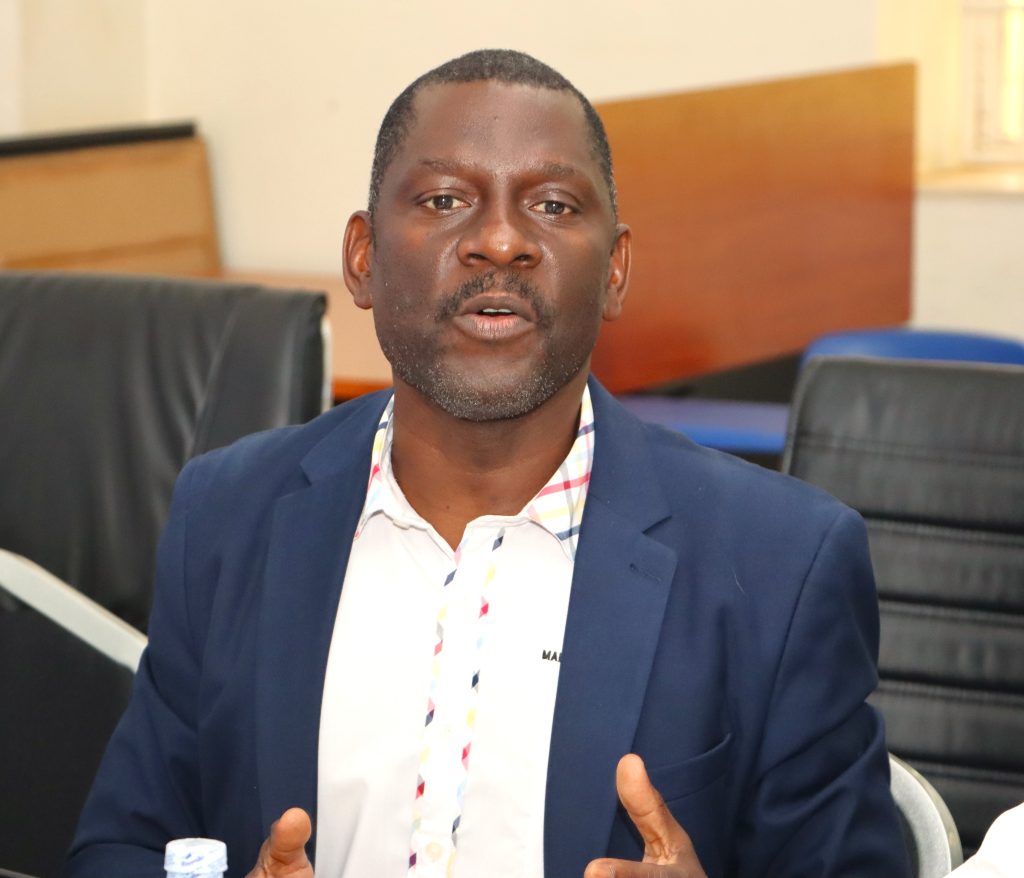
To ensure compliance, the university has mandated that deans and deputy principals confirm examiner commitment in writing. Theses submitted to examiners who decline to adhere to the timeline will be returned.
Prof. Kikooma also highlighted another source of delay: post-defense corrections. According to the policy, students are required to complete corrections within three months of their viva. However, a lack of follow-up has led to cases where students who defended in February only begin the graduation process as late as November.
To address this, the Directorate of Graduate Studies has introduced a monitoring system. Schools are now required to inform the directorate of scheduled vivas so that correction timelines can be tracked and enforced. Reminders will be sent to ensure students are included in graduation lists.
A major concern raised by Prof. Kikooma was the widespread lack of awareness among academic staff particularly supervisors about these updated policies. He called on supervisors to familiarize themselves with the policy handbook, noting that some continue to guide students who are no longer officially registered at the university.
“You are only supposed to supervise a student who is registered. Otherwise, you may be working with someone whose academic status is invalid, and that benefits no one,” he warned.
Prof. Kikooma also addressed confusion around the university’s publication requirements for doctoral candidates. As per policy, students must present at least one published paper and one accepted manuscript before they are allowed to submit their thesis.
“If you allow submission without publications, and then block them from viva voce, they end up exceeding the six-month limit for the examination process. It’s imperative that these conditions are met before submission,” he said.
Exceptions may be made for students who present multiple high-quality manuscripts. In such cases, the doctoral committee must evaluate the work and confirm its publishable merit, especially in disciplines where publishing is more time-consuming, such as archaeology or music.
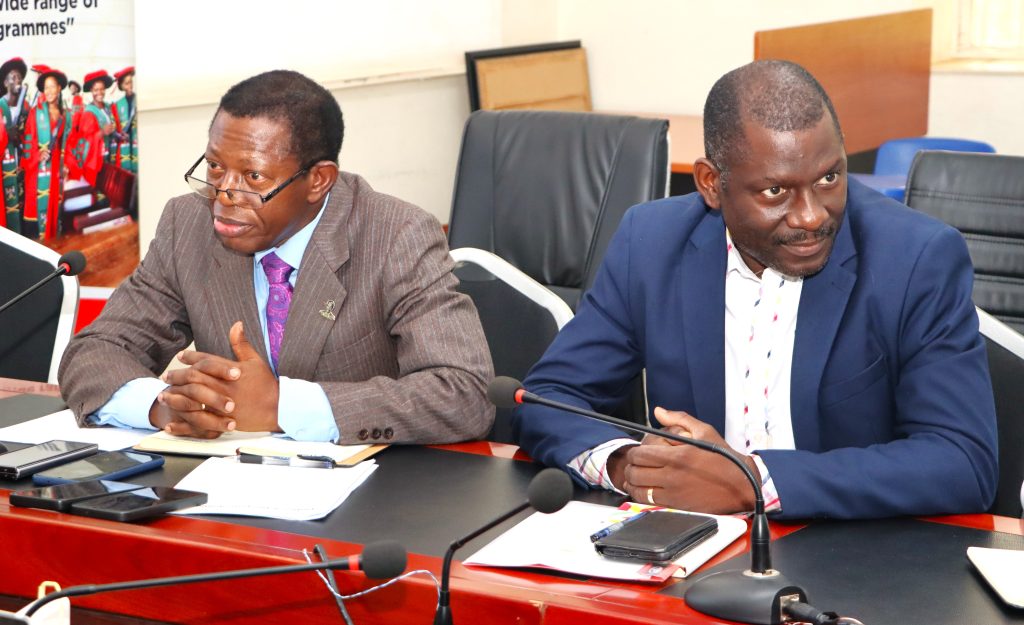
Prof. Kikooma emphasized that these measures are part of a broader institutional push to improve completion and graduation rates without compromising academic standards.
“Quality, integrity, and professionalism are non-negotiable,” he said.
He concluded by calling for a comprehensive review of the supervision process, which he described as a critical, yet underexamined component of graduate education.
Participants Embrace Accountability Agenda, Call for Thoughtful Implementation of Biometrics and Academic Reforms
Makerere University’s ongoing efforts to strengthen academic accountability and quality assurance received a strong show of interest and engagement during a recent stakeholder discussion. The conversation centered on the thoughtful rollout of biometric attendance systems, the refinement of self-assessment tools, and optimal allocation of institutional resources to support blended learning and innovation.
Participants welcomed the University’s proactive steps toward enhancing transparency but also underscored the importance of implementing systems in ways that are constructive, equitable, and sensitive to the academic context. Discussions around biometric data focused on ensuring that its use supports professional development rather than punitive oversight. Stakeholders emphasized that such data should be used to inform improvement strategies, and proposed that preliminary analysis be handled at the departmental level to encourage local ownership and minimize misinterpretation.
There was active engagement around the evolving lecturer assessment system. Participants expressed appreciation for the initiative while recommending that it be refined to include clearer guidelines and safeguards to ensure consistency and fairness in evaluations. A shared sentiment emerged around the value of student feedback, provided it is contextualized and used collaboratively to enhance teaching and learning.
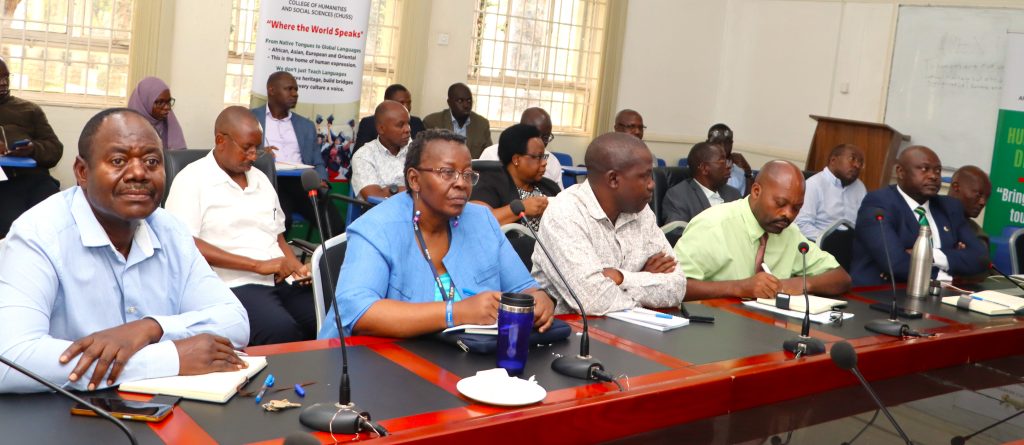
The dialogue also highlighted the complex balance between teaching, research, and community engagement responsibilities. Staff noted the importance of clearly defined institutional expectations, particularly to support academic staff who contribute significantly to research and outreach beyond the classroom.
While recognizing the potential of biometric systems—especially in light of international best practices—participants encouraged the University to ensure these tools account for the full scope of academic duties, including fieldwork and research conducted off-campus. This, they agreed, would ensure a more accurate and fair reflection of staff contributions.
In terms of resource allocation, attendees reaffirmed the importance of investing in digital learning infrastructure. Suggestions were made to strike a balance between systems for monitoring attendance and those that directly enhance the student learning experience, such as smart lecture technologies and access to laptops.
A recurring theme was the need for continuous dialogue between students, staff, and administrators. Participants proposed regular feedback mechanisms as a way to strengthen mutual accountability and reinforce a shared vision for academic excellence.
The meeting also called attention to the need for increased administrative capacity, with recommendations to recruit and train additional staff such as deputy registrars to support academic operations and uphold quality assurance processes.
Finally, academic staff were encouraged to take an active role in shaping reform agendas, particularly in areas such as professorial lectures and innovative teaching practices that promote openness, creativity, and shared responsibility.
The discussions reflected strong support for Makerere’s accountability initiatives, with a clear consensus on the need for fair, inclusive, and context-aware implementation. Participants expressed optimism that through ongoing collaboration and transparent communication, the University will continue to lead in fostering a responsive and forward-looking academic environment.
By Monica Meeme, Intern, and Jane Anyango

